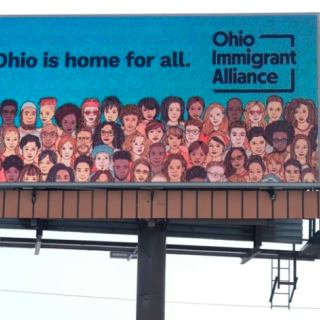Advertisement
Antisemitism signifies hatred of Jews and the ways that hatred is perpetuated, not just through age-old conspiracy theories but also their modern variants espoused on social media and elsewhere. But the International Holocaust Remembrance Alliance (IHRA) supports defining antisemitism in a way that would consider political discourse critical of the Israeli government as antisemitism. In condemning all speech against the Israeli government, the IHRA definition serves to label all critics of Israel and pro-Palestinian activists as antisemites.
While we agree with the first sentence of the IHRA definition,“Antisemitism is a certain perception of Jews, which may be expressed as hatred toward Jews,” the definition goes on to list eleven manifestations of antisemitism including a subjective description of political speech equating criticism of Israel with antisemitism. The factual statement that settlements (Jewish-only) in the Occupied West Bank are illegal according to Article 49 of the Fourth Geneva Convention would be considered antisemitic hate speech according to the larger IHRA definition.
Following the IHRA’s release of their definition of antisemitism a few years ago, 122 Palestinian and Arab scholars, journalists, and public intellectuals spoke to the dangers of the IHRA Definition of Antisemitism in a letter published in The Guardian:
“Antisemitism must be debunked and combatted. … [N]o expression of hatred for Jews as Jews should be tolerated anywhere in the world. . . . The fight against antisemitism must, however, be approached in a principled manner, lest it defeat its purpose. The fight against antisemitism should not be turned into a stratagem to delegitimize the fight against the oppression of the Palestinians, the denial of their rights and the continued occupation of their land. . .” (see Palestinian Rights and the IHRA Definition of Antisemitism)
In November 2022, 128 global scholars of Holocaust and Antisemitism Studies, Modern Jewish History, and related fields published a statement urging the UN not to adopt the IHRA definition of antisemitism, stating:
“Let us be clear: we wholeheartedly welcome the commitment of the UN to fight antisemitism and commend the UN for its vital efforts in this regard. What we object to and strongly warn against is that the UN would jeopardize this essential fight and harm its universal mission to promote human rights by endorsing a politicized definition that is instrumentalized to deter free speech and to shield the Israeli government from accountability for its actions.” (see 128 scholars ask UN not to adopt IHRA definition of anti-Semitism)
Unfortunately, over 30 countries including the United States have endorsed the IHRA definition. Now Israel has announced plans to take it to the United Nations for adoption on International Holocaust Remembrance Day on January 27, 2023.
White supremacist attacks in the US on Jews and people of color have been on the rise. Politicizing the definition of antisemitism is not the way to stop antisemitism. WILPF stands against all forms of bigotry, discrimination, and hate, including antisemitism and Islamophobia. We organize across issues to create societies where all people have value and equal rights.
We should remember the Holocaust. We should also know about and remember the Nakba,
Israel's ethnic cleansing of Palestine, exiling of Palestinians and making them into refugees, dispossession of Palestinian property, destruction of Palestinian cities, towns, and villages, and attempt to erase the existence of the Palestinian people from their homeland in 1948. (from The Nakba and Palestine Refugees / IMEU Questions and Answers)
To acknowledge and remember the Nakba is not hatred toward Jews. Is acknowledgement and remembrance of the Holocaust hatred toward Germans? Both remembrances are calls to understand root causes and prevent repetition.
WILPF’s Middle East Peace & Justice Action Committee urges you to take action to prevent the UN from adopting the IHRA definition of antisemitism. Please accept our thanks, in advance, for finding the time to ACT NOW!
What You Can Do
Ask LINDA THOMAS-GREENFIELD, US Ambassador to the UN, to vote against the adoption of the IHRA definition of antisemitism. Let her know that endorsement of this politicized definition would deter free speech and shield the Israeli government from accountability. It is not antisemitic to hold the Israeli government (or any government) accountable for its human rights abuses. Adoption of the IHRA definition would harm the UN’s mission to promote human rights for all people.
Ask your senators and representatives (find your member here) to reject IHRA’s definition of antisemitism. Palestinians have been and still are being displaced from their homes and land by the Israeli military forces and illegal Israeli settlements. It is not hatred toward Jews (antisemitism) to point this out and hold Israel accountable. It is our First Amendment right to speak out against human rights violations, especially when our tax dollars are funding the Israeli Defense Forces; every year, the US gives $3.8-$4.8 billion in military aid to Israel. The Leahy law prohibits US military aid to countries that violate human rights.
Support the Boycott Divestment and Sanctions (BDS) movement that works to pressure Israel to comply with international law. There are anti-BDS laws in 35 states that, like the IHRA definition of antisemitism, want to silence, and in this case criminalize, the nonviolent struggle for Palestinian rights. Advocating compliance with international law, the goal of BDS, is not hatred toward Jews (antisemitism).
The best way to stand against antisemitism is to stand in solidarity with all struggles for justice and against all racism, bigotry, oppression, and injustice!



